9 June 2020
Understanding the struggle of Black America
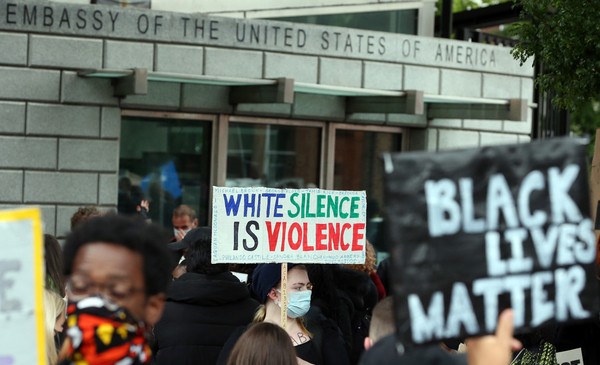
While far from a unique event, the brutal murder of George Floyd has again laid bare the systemic racism that characterises US capitalism for the world to see. The resistance observed in the streets of US cities and the outpouring of expressions of solidarity to black Americans from people of every creed, colour, and background demonstrates the very best of the human spirit.
Many in Ireland, particularly Republicans, have begun to consider and discuss the parallels between the liberation struggle of black Americans and the struggle for Irish freedom. While there are indeed parallels between these struggles and the assertion of these is borne from a position of solidarity and common experience, pitfalls exist that are important to bear in mind.
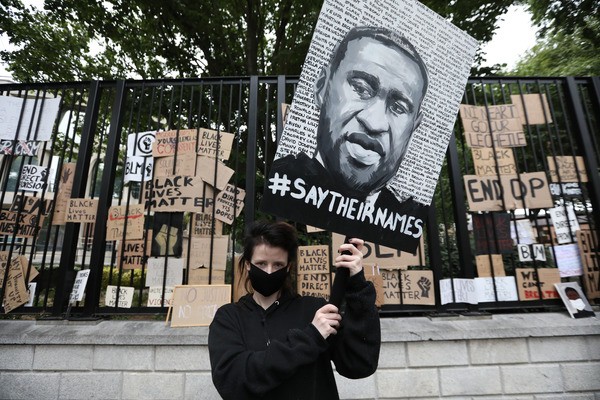
Irish Republicans have proudly stood by oppressed peoples across the world, from the burning olive groves of Bethlehem to the tear gassed streets of Minneapolis. Developing a deep and incisive understanding of our own history and that of others has always been a core responsibility we have as Irish Republicans. The central importance placed on political education by IRA prisoners of war during years of struggle is a testament to this.
In terms of parallels, the most recent phase of struggle in the north of Ireland saw Irish Catholics excluded and viscously oppressed by the Orange State with support from the British Government. Catholics were denied jobs, housing, and votes by a sectarian system that exhibited supremacist attitudes at all levels of organisation.

The Northern Ireland Civil Rights Association (NICRA) that was set up to advocate for the civil rights of all was heavily influenced by the US Black civil rights movement. Indeed, the first NICRA protest march on August 24th 1968 from Coalisland to Dungannon, in which my grandfather marched, was directly modelled on Martin Luther King Jr’s March from Selma to Montgomery that had taken place three years prior in Alabama.
In Ireland, protesters were beaten and shot off the streets by the RUC and the British Army. Communities were tear gassed and children murdered by plastic and rubber bullets of a similar kind to those fired by US police on protesters today.
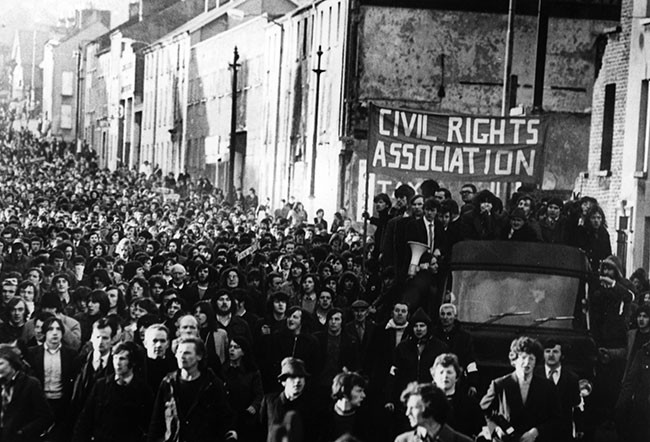
• Civil Rights march on Bloody Sunday
The violent reaction of the British Government to these simple demands resulted in the internment of Catholics without trial and culminated in the Bloody Sunday Massacre in Derry, which saw 14 innocent protesters gunned down in broad daylight. The families of whom were denied justice for decades.
These events served to radicalise a generation, bury any chances of peaceful resolution, and pave the way for an intense armed struggle between the IRA and British forces, including the RUC and loyalist paramilitaries, many of whom explicitly expressed the ideals of Nazism and white supremacy.
While it is of obvious importance to analyse and appreciate the parallels between the Irish struggle and that of black Americans, a number of questionable historical narratives have arisen in the online discourse surrounding George Floyd’s murder that warrant challenging by Republicans. The comparison between indentured servitude, historically suffered by the Irish, and the slavery endured by black people is one that surfaces with a degree of regularity, and while many of those drawing such a comparison do so from a position of sincerity and solidarity, such comparisons are palpably false. The Irish were not slaves.
This argument, which is often used by white supremacists in the US to criticise the black civil rights movement, has been thoroughly debunked and in 2016 was the subject of an open letter signed by 82 Irish scholars condemning its dissemination.
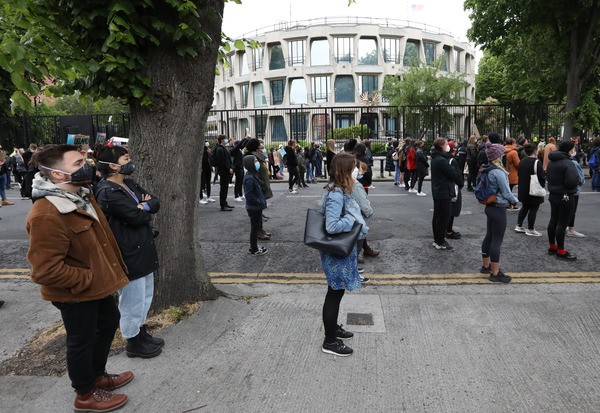
In short, as opposed to Black slaves, indentured servants were considered legally human and were subjected to a finite sentence. Crucially, the offspring of indentured servants were not born into indentured servitude, unlike the children of slaves. This is not to say that Irish indentured servants did not suffer, but it is important for Irish Republicans to challenge the decontextualisation and dehistoricisation of what befell both groups.
The Irish freedom struggle enjoys strong relationships with freedom struggles all over the world from South Africa to the Basque country. It is the balance of openness in sharing our experiences and learning about those of others that has placed us at the ideological heart of anti-imperialism and resistance. While solidarity grows from shared experience, a working appreciation of the distinct pathways oppressed peoples walk is tactically important. Now is the time to listen, reflect, and organise.
There are practical steps we can take to support our black brothers and sisters in the US. As well as attending protests and raising awareness, donations to one of the numerous legal defence funds that have been set up to support those protesting racism and police brutality in the US would be helpful.
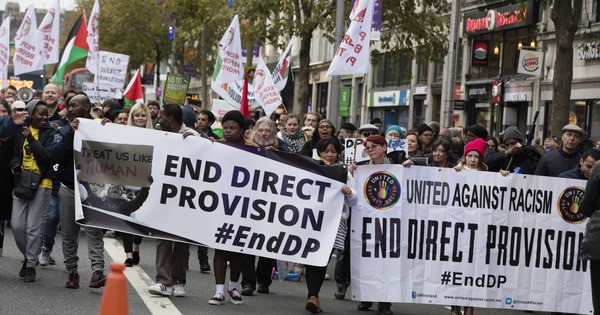
Racism in our own country is also on the rise, fascists march on the streets and the government presides over a brutal racist system of human degradation known as Direct Provision. It is right that Mary Lou challenged the hypocrisy of the Irish Government in quietly opposing the murder of George Floyd while defending the vested interests that prop up a Direct Provision system that virtually imprisons people of colour for private profit.
The challenges faced by those seeking justice for George Floyd are many and great, but if there is one lesson to be taken from history it is that when people stand together in common purpose, no barrier is insurmountable.
Cathal Óg Donnelly is a Sinn Fein activist
Follow us on Facebook
An Phoblacht on Twitter
Uncomfortable Conversations

An initiative for dialogue
for reconciliation
— — — — — — —
Contributions from key figures in the churches, academia and wider civic society as well as senior republican figures




